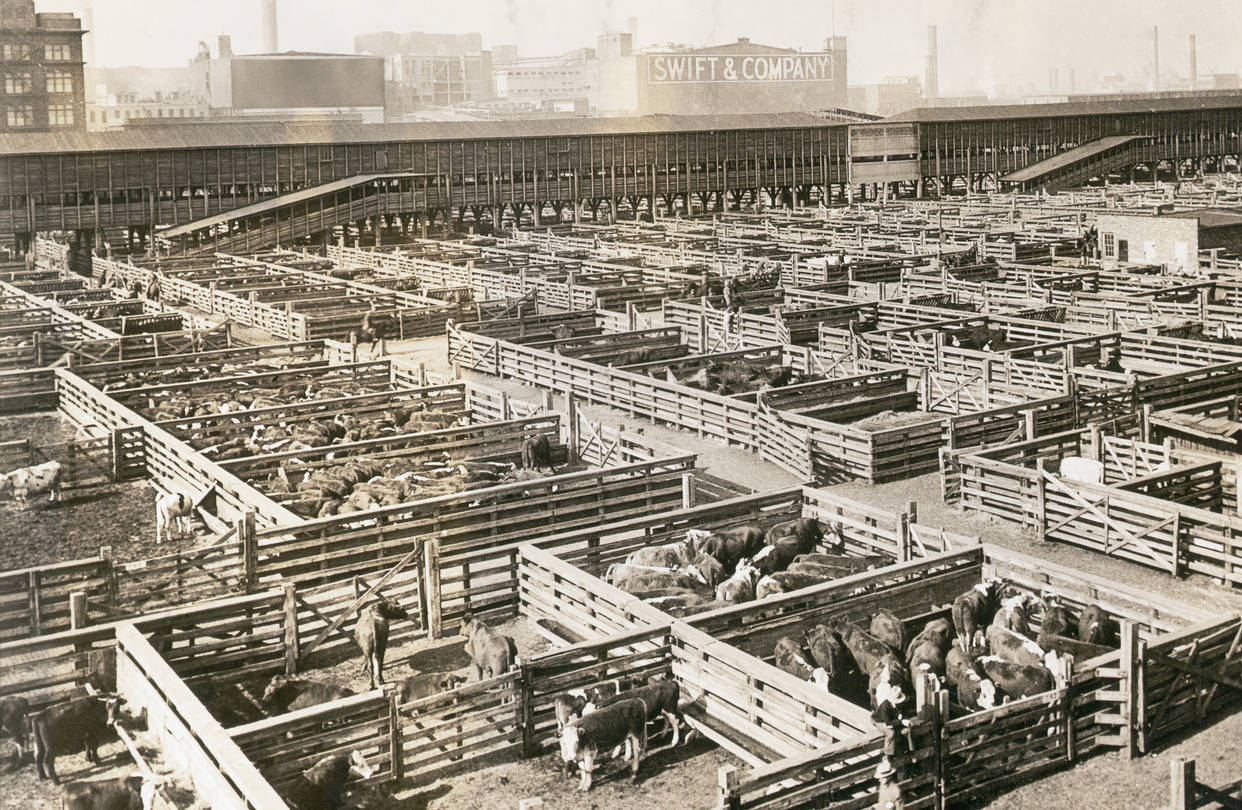Thesis

Chicago stockyards, Photo, CORBIS IMAGES.
As the United States entered its second industrial revolution and saw the population increasing, it became necessary to mass-manufacture food to feed the people. Food became more processed and to keep it appearing fresh at the market, companies started to turn towards chemicals. Entering the 20th century, foods were concentrated with chemicals that were not supposed to be in them.
From Harvey Wiley's scientific investigations on the food to Upton Sinclair's The Jungle, mountains of research on adulteration were conducted, expressing the concern that adulteration brought to the kitchen table. When the public was notified of the horrible practices of the food industry, Congress had no other option but to pass the inevitable Pure Food and Drug Act. The Act prohibited the sale of adulterated or misbranded food or drugs in the U.S. The Act of 1906 was a major turning point in the history of the United States because it was the first substantial bill that called for the safety of the foods and drugs being produced throughout the nation.
"The enactment of a pure food law was a recognition of the fact that the public welfare outweighs the right to private gain, and that no man may poison the people for his private profit."
~ Theodore Roosevelt
The Science